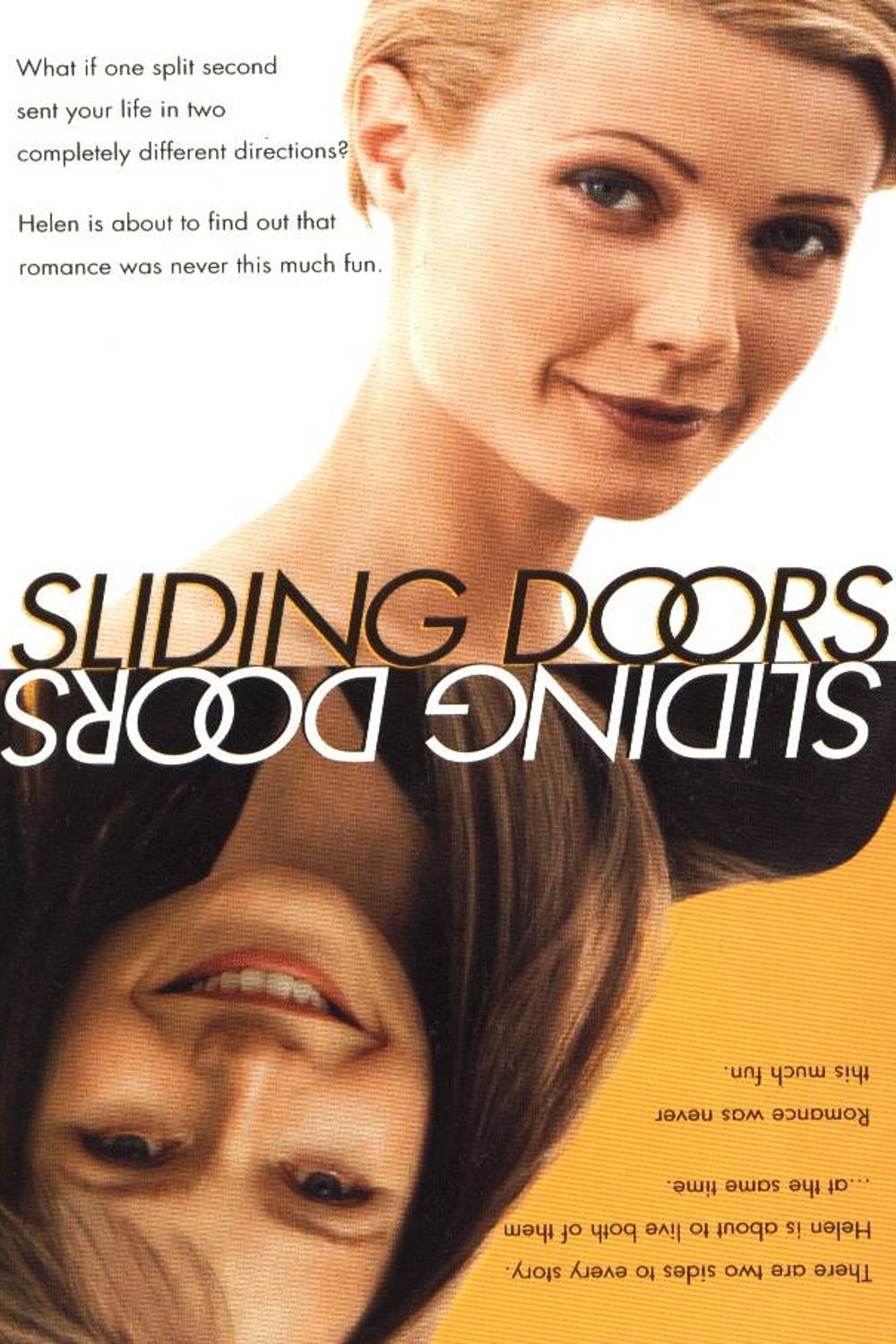“Sliding Doors” uses parallel time-lines to explore the different paths that a woman’s life might take after she does, and doesn’t, find her lover in bed with another woman. I submit that there is a simple test to determine whether this plot can work: Is either time-line interesting in itself? If not, then no amount of shifting back and forth between them can help. And I fear they are not.
The movie stars Gwyneth Paltrow as Helen, a London publicity executive who is fired for no good reason, and stalks out of her office in midmorning to take the underground train back home. In one scenario, she catches the train. In the other, she misses it because she’s delayed, and the doors slide shut in her face. To save confusion, we will call these Scenarios A and B.
In A, Helen arrives home unexpectedly and finds her lover, Gerry (John Lynch), in the sack with his mistress, Lydia (Jeanne Tripplehorn). She confronts them, walks out, goes to a bar and runs into James (John Hannah). James recognizes her because earlier he chatted her up on the train. Over the next few days, Helen A is comforted by her best friend, gets her long hair cut and dyed blond, and begins to fall in love with James.
In Scenario B, Helen misses the train, and by the time she arrives home Lydia is already off the scene. But she begins to suspect things when she realizes two brandy glasses were on the dresser. Eventually Helen B finds out about Lydia, who is the kind of woman who gets sadistic satisfaction out of popping up unexpectedly and threatening to blow Gerry’s cover.
The film cuts backs and forth between A and B. It is clear that Gerry is a creep, Lydia is a Fatal Attraction and James is a thoroughly nice bloke, although the requirements of Screenwriting 101 force the movie into a manufactured crisis in which it appears that James may have been lying to Helen A. There’s even one of those scenes that maddens me, in which James goes to Helen A’s best friend’s house, is told of the misunderstanding, could say two or three words to clear it all up–but doesn’t, because he is a puppet of the plot.
Gwyneth Paltrow is engaging as the two Helens, and I have no complaints about her performance. Pity about the screenplay. It requires her to appear to be unobservant, gullible and absentminded as the faithless Gerry hems and haws through absurdly contrived emergencies. The worst moment comes when he opens the kitchen blinds, and Lydia is standing right outside them, staring at him. He slams them shut and tries to pretend nothing happened. What we have here is a particularly annoying movie gimmick in which the other person (Lydia, in this case) knows exactly when and where to position herself to create the shock effect. We aren’t allowed to wonder how many hours, or days, she was posted outside, maybe in the rain, waiting for him to open the blinds.
I am grateful that the movie provides Helen A and Helen B with different haircuts, which helps tell the story lines apart (a bandage is used in the early scenes). But as we switched relentlessly back and forth between A and B, I found that I wasn’t looking forward to either story. True, James is played by Hannah with warmth and charm, but to what effect? Is he interesting as a person? Does he, or anyone in the film, have much to say that’s not at the service of the plot? I would have preferred Hypothetical Scenario C, in which Gwyneth Paltrow meets neither James nor Gerry, and stars in a smarter movie.



















